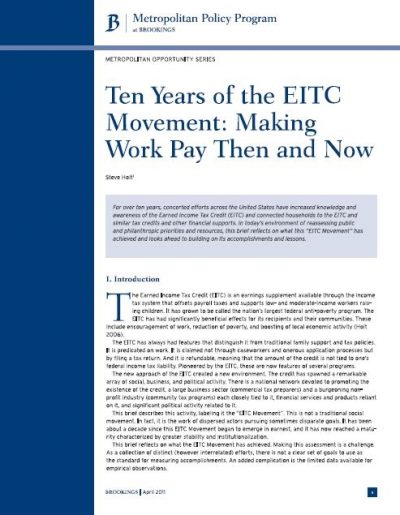Increasing Access
Between 175 and 1986, the number of households receiving the EITC fluctuated in a range between 5.2 and 7.4 million. In 1987, that number grew to 8.7 million, in 1988 it was 11.1 million, and in 1992 it hit 14 million.

The Earned Income Tax Credit (EITC) is meant to encourage work, reduce poverty, and boost local economic activity by offsetting payroll taxes for low- and moderate-income workers raising children. It is predicated on work, and obtained through filing a tax return. Out of its prevalence and its success, the EITC has spawned an array of social, business, and political activity. There is a national network devoted to promoting the existence of the credit, a large business sector (commercial tax preparers) and a burgeoning nonprofit industry (community tax programs) each closely tied to it. This brief describes this collective activity, labeling it the “EITC Movement,” reflecting on what it has achieved and the growing challenges facing the movement.
The three basic motivations for the EITC Movement are: (1) ensuring that eligible households know about and claim the EITC, (2) helping claimants avoid costly transaction fees and other expenses, and (3) using tax credit-influenced refunds as an opportunity for asset development.
We hope you'll find value in this report. We’d love to get a little information from you, which we'll use to notify you about relevant new resources.